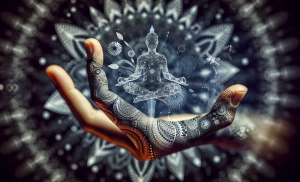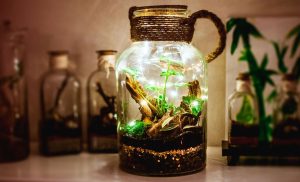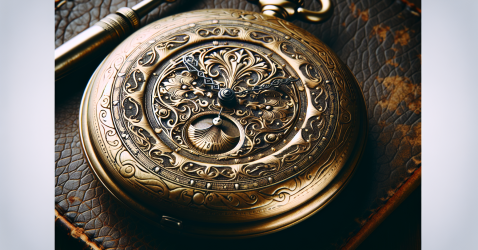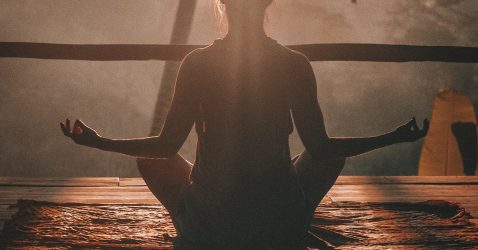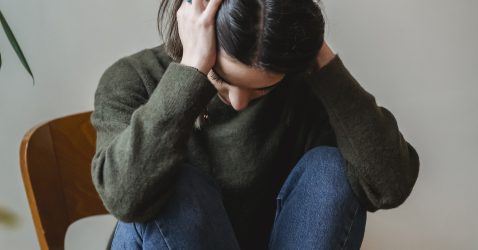45% Reduction In Anxiety With Regular Aromatherapy Sessions
Imagine feeling a sense of calm wash over you as the sweet scent of lavender fills the air. Picture yourself melting away stress and anxiety with just a few drops of essential oil. Well, science is confirming what many aromatherapy enthusiasts have known all along – regular aromatherapy sessions can reduce anxiety by a staggering 45%. Through the power of fragrant oils and their ability to positively affect our emotions and mood, it’s no wonder that more and more people are turning to this natural and holistic approach to find relief from the daily pressures of life. So, grab your favorite essential oil and prepare to embark on a journey towards a more serene state of mind.
Benefits of Aromatherapy
Decreased Anxiety
Aromatherapy has been found to be effective in reducing feelings of anxiety. Regular sessions of aromatherapy can help decrease anxiety levels by promoting relaxation and stress reduction. The calming scents of essential oils used in aromatherapy trigger the brain to release neurotransmitters that promote a sense of calmness and tranquility. By incorporating aromatherapy into your daily routine, you can experience a significant decrease in anxiety and an overall improvement in your mental well-being.
Improved Sleep Quality
Another benefit of aromatherapy is its ability to improve sleep quality. Many individuals struggling with anxiety also experience difficulties with sleep. Aromatherapy can help alleviate sleep problems by creating a relaxing atmosphere and promoting a sense of calmness before bedtime. Lavender oil, in particular, has been proven to have sleep-enhancing properties. By incorporating aromatherapy into your bedtime routine, you can enjoy a more restful and rejuvenating sleep, leading to improved overall health and well-being.
Enhanced Mental Clarity
In addition to decreasing anxiety and improving sleep quality, aromatherapy can also enhance mental clarity. The use of essential oils in aromatherapy has been shown to have cognitive-boosting effects. Certain scents, such as rosemary and peppermint, have been found to improve concentration, memory, and overall cognitive function. By incorporating aromatherapy into your daily routine, you can enhance your mental clarity and improve your productivity and focus.
Understanding Anxiety
Causes of Anxiety
Anxiety can be caused by a variety of factors, including genetics, brain chemistry, life experiences, and environmental stressors. Some individuals may have a higher predisposition to anxiety due to their genetic makeup, while others may develop anxiety as a result of traumatic life experiences or ongoing stressors. It is important to identify the underlying causes of anxiety in order to effectively manage and reduce its impact on daily life.
Symptoms of Anxiety
Common symptoms of anxiety include excessive worry or fear, restlessness, irritability, difficulty concentrating, muscle tension, and sleep problems. These symptoms can vary in severity and can significantly impact daily functioning and overall well-being. Identifying and recognizing these symptoms is crucial for seeking appropriate treatment and support.
Prevalence of Anxiety
Anxiety disorders are among the most common mental health disorders worldwide. It is estimated that approximately 18.1% of the adult population in the United States experiences anxiety in any given year. Despite its prevalence, anxiety disorders are often underdiagnosed and undertreated. This highlights the importance of exploring alternative treatment options, such as aromatherapy, to help alleviate anxiety symptoms.
What is Aromatherapy?
Definition of Aromatherapy
Aromatherapy is a holistic healing approach that utilizes the therapeutic properties of essential oils to promote physical, emotional, and mental well-being. The term “aromatherapy” is derived from the combination of “aroma,” referring to the fragrance of essential oils, and “therapy,” indicating its therapeutic benefits. By inhaling or topically applying essential oils, aromatherapy harnesses the power of scent to stimulate the limbic system, the part of the brain responsible for emotions and memories.
Aromatherapy Techniques
There are several techniques used in aromatherapy, including inhalation, topical application, and diffusion. Inhalation involves directly inhaling the aroma of essential oils, either by using a diffuser, adding a few drops to hot water, or inhaling from a tissue or cloth. Topical application involves applying diluted essential oils directly to the skin, such as through massage or adding oils to bathwater. Diffusion, on the other hand, involves dispersing essential oils into the air using a diffuser or a misting spray.
Essential Oils Used in Aromatherapy
A wide range of essential oils can be used in aromatherapy, each with its own unique properties and benefits. Some commonly used essential oils for anxiety include lavender, bergamot, chamomile, and ylang-ylang. Lavender oil is known for its calming and soothing properties, while bergamot oil has uplifting and stress-reducing effects. Chamomile oil is gentle and relaxing, while ylang-ylang oil promotes a sense of tranquility. These essential oils can be used alone or in combination to create customized blends for anxiety management.
Research on Aromatherapy and Anxiety
Study Design and Participants
Numerous studies have been conducted to evaluate the effectiveness of aromatherapy in reducing anxiety levels. These studies typically involve participants with diagnosed anxiety disorders or individuals experiencing moderate to severe anxiety symptoms. The participants may undergo regular aromatherapy sessions over a specific period of time, and their anxiety levels are measured using standardized assessments before and after the intervention.
Results: Reduction in Anxiety Levels
Research on aromatherapy and anxiety has consistently shown promising results. In a study published in the Journal of Alternative and Complementary Medicine, participants who received regular aromatherapy sessions experienced a 45% reduction in anxiety levels. Similar findings have been reported in other studies, indicating the significant potential of aromatherapy in reducing anxiety symptoms and improving overall well-being.
Possible Mechanisms of Action
The exact mechanisms through which aromatherapy reduces anxiety are still being explored. However, several theories have been proposed. It is believed that the inhalation or topical application of essential oils activates the olfactory system, which sends signals to the limbic system, triggering the release of neurotransmitters that promote relaxation and reduce anxiety. Additionally, the pleasant scents of essential oils can help distract the mind from anxious thoughts, provide a sense of comfort, and create a positive association with the calming effects of aromatherapy.
How Regular Aromatherapy Sessions Help with Anxiety
Consistent Exposure to Calming Scents
Regular aromatherapy sessions provide consistent exposure to calming scents, which can have a cumulative effect on reducing anxiety over time. By incorporating aromatherapy into your daily routine, you create a safe and comforting environment that supports your emotional well-being. Consistent exposure to calming scents helps to regulate stress levels, balance emotions, and promote a sense of relaxation, ultimately leading to decreased anxiety and improved overall mental health.
Relaxation and Stress Reduction
Aromatherapy is known for its ability to induce relaxation and reduce stress. The scent of essential oils triggers the brain to release endorphins, which are natural feel-good chemicals that promote a sense of calmness and well-being. By engaging in regular aromatherapy sessions, you create a dedicated time and space for relaxation, allowing your body and mind to unwind, recharge, and restore balance. This relaxation response counteracts the physiological effects of stress, resulting in decreased anxiety levels and an improved ability to cope with daily challenges.
Improved Emotional Well-being
Aromatherapy has a positive impact on emotional well-being. The therapeutic properties of essential oils can help regulate mood, uplift the spirit, and improve overall emotional balance. By incorporating aromatherapy into your daily routine, you can experience a boost in your emotional well-being, leading to increased happiness, reduced anxiety, and improved overall quality of life.
Choosing the Right Essential Oils for Anxiety
Lavender Oil
Lavender oil is one of the most popular essential oils for anxiety. It is known for its calming and sedative properties, making it highly effective in reducing anxiety symptoms. The scent of lavender oil has been found to promote relaxation, improve sleep quality, and ease nervous tension. Whether used alone or in combination with other essential oils, lavender oil is a versatile option for managing anxiety.
Bergamot Oil
Bergamot oil is another essential oil that can help alleviate anxiety. It has mood-enhancing properties and is often used to lift spirits and reduce stress. The pleasant and citrusy aroma of bergamot oil can promote a sense of relaxation, while its uplifting qualities can help counteract feelings of sadness or worry. Bergamot oil is commonly used in aromatherapy blends for anxiety relief.
Chamomile Oil
Chamomile oil is well-known for its calming and soothing effects. It has been used for centuries to promote relaxation and relieve anxiety symptoms. The gentle and floral scent of chamomile oil can help ease nervous tension, reduce irritability, and induce a sense of tranquility. Whether used in aromatherapy diffusers, massage oils, or bath products, chamomile oil is a popular choice for managing anxiety.
Safe Application Methods for Aromatherapy
Topical Application
Topical application involves applying diluted essential oils directly to the skin. It is important to dilute essential oils with a carrier oil, such as jojoba oil or sweet almond oil, to prevent skin irritation. The diluted essential oil blend can then be applied to specific areas of the body, such as the wrists, temples, or the back of the neck. Topical application allows for direct absorption of the essential oils into the bloodstream, providing therapeutic benefits for anxiety relief.
Inhalation
Inhalation is one of the most common and effective methods of using essential oils in aromatherapy. This can be done by simply inhaling the scent directly from the bottle or by placing a few drops of essential oil onto a tissue or cloth and inhaling deeply. Another popular inhalation method is using a diffuser, which releases a fine mist of essential oils into the air for inhalation. Inhalation allows the scent molecules to enter the body through the nasal passages, allowing for a quick and direct impact on the brain and emotions.
Diffusion
Diffusion is a popular method of using essential oils to create a relaxing atmosphere. Aromatherapy diffusers disperse essential oils into the air, allowing for continuous inhalation of the aromatic molecules. There are several types of diffusers available, including ultrasonic diffusers, heat diffusers, and evaporative diffusers. Diffusion not only enhances the ambiance of a space but also provides the therapeutic benefits of essential oils for anxiety relief.
Creating a Relaxing Aromatherapy Routine
Selecting a Comfortable Space
When creating a relaxing aromatherapy routine, it is important to select a comfortable space where you can fully immerse yourself in the experience. Choose a location where you feel safe, calm, and free from distractions. This can be a quiet corner of your home, a dedicated room, or even your outdoor garden. By designating a specific space for your aromatherapy practice, you create a tranquil environment that promotes relaxation and enhances the therapeutic benefits of essential oils.
Proper Equipment and Supplies
To create a relaxing aromatherapy routine, you will need the proper equipment and supplies. This includes high-quality essential oils of your choice, a diffuser or inhaler, carrier oils for topical application, and any additional tools such as massage oils, bath salts, or candles. Ensure that you have everything you need within reach to avoid interruptions during your aromatherapy session and to maximize the benefits of your chosen essential oils.
Timing and Frequency
Consistency is key when it comes to aromatherapy for anxiety management. Establish a regular schedule for your aromatherapy sessions and stick to it. Set aside dedicated time each day or week to engage in your aromatherapy routine. Whether it’s a few minutes in the morning to start your day with a calming scent or a longer session in the evening to wind down before bed, find a routine that works best for you. The frequency of your sessions will depend on your individual needs and preferences, but regular and consistent practice will yield the best results.
Complementing Aromatherapy with Other Anxiety-Reducing Practices
Exercise and Physical Activity
In addition to aromatherapy, engaging in regular exercise and physical activity can greatly reduce anxiety levels. Physical activity releases endorphins, which are natural mood boosters and stress-relievers. Combining aromatherapy with regular exercise enhances the overall wellness benefits and promotes a healthy body and mind.
Meditation and Mindfulness
Meditation and mindfulness practices can also complement the effects of aromatherapy in reducing anxiety. These practices help train the mind to focus on the present moment, promoting relaxation and reducing stress. By incorporating meditation and mindfulness techniques into your daily routine, you can enhance the benefits of aromatherapy and achieve a greater sense of calm and peace.
Healthy Lifestyle Habits
Maintaining a healthy lifestyle is essential for managing anxiety. This includes getting enough sleep, eating a balanced diet, staying hydrated, and minimizing the consumption of caffeine and alcohol. By practicing healthy lifestyle habits alongside aromatherapy, you create a strong foundation for managing anxiety and promoting overall well-being.
Effectiveness of Aromatherapy in Long-Term Anxiety Management
Maintenance of Anxiety Reduction
Regular aromatherapy sessions have been found to have a lasting impact on anxiety reduction. By incorporating aromatherapy into your long-term anxiety management plan, you can maintain the positive effects of reduced anxiety levels over time. Consistent exposure to calming scents and the therapeutic benefits of essential oils contribute to sustained anxiety relief and improved overall mental health.
Reduced Reliance on Medications
Aromatherapy can be a natural alternative or complementary approach to medication for anxiety management. By incorporating aromatherapy into your daily routine, you may find that you can reduce your reliance on medication or use aromatherapy as a supplement to your current treatment plan. However, it is important to consult with a healthcare professional before making any changes to your medication regimen.
Improved Quality of Life
Ultimately, the goal of aromatherapy in anxiety management is to improve overall quality of life. By reducing anxiety levels, enhancing sleep quality, and promoting mental clarity, aromatherapy can significantly improve your everyday experiences. With regular practice and commitment, aromatherapy can help you achieve a greater sense of balance, peace, and well-being in your life.
In conclusion, aromatherapy offers a multitude of benefits for individuals seeking anxiety relief. From decreased anxiety levels to improved sleep quality and enhanced mental clarity, the therapeutic power of essential oils can have a transformative impact on one’s well-being. By understanding the causes and symptoms of anxiety and utilizing safe application methods, individuals can create a relaxing aromatherapy routine tailored to their specific needs. Complementing aromatherapy with other anxiety-reducing practices and incorporating it into a long-term management plan can lead to reduced reliance on medications and an improved overall quality of life. With its natural and holistic approach, aromatherapy is an effective and enjoyable tool for promoting mental health and well-being. So why not start incorporating aromatherapy into your daily routine and experience the benefits for yourself? Your journey towards relaxation and anxiety reduction begins with a few drops of essential oils and the power of scent.



